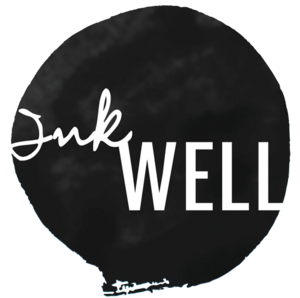A friend recently asked how I find time to keep a journal. Actually, I can’t afford not to find the time to journal every morning, usually for 30 minutes. It keeps the mental ducts clear so creativity and resilience flow more smoothly. It is vital self-care.
Many writers advocate daily writing. Natalie Goldberg calls it "writing practice." I used to journal every day because I wanted to be a better writer. Someone might read it someday. Practicing for an audience is important. Becoming proficient at any craft takes time and commitment to learn from mistakes. Nobody questions that musicians need to practice hard all the time. So do writers.
However, when I started journaling for myself, I felt relief and sometimes delight in the freedom. I stopped using it as a kind of dress rehearsal for more important work. Stephanie Dowrick writes, “Journal writing is a supreme way to record your own life’s journey.” Journaling helps me grow, heal, enjoy life better, and find meaning in it. I know no better tool for coping during hard times.
In researching the book, Creating A Life Worth Living, Carol Lloyd interviewed many successful creators. Most artists practice what she calls "ecstatic task.” It could be dancing, walking, gardening - any solitary, focused, process-oriented activity, for at least 15 minutes early in the day. In my journal each morning, I reaffirm the power of writing. Everyone’s approach is unique, but here are two exercises I like.
Automatic writing for me means writing with a blank mind. I’m not a morning person. My mind is dull. I usually wake up worrying about something. Putting useful words together doesn’t come easily. After making tea, I go to my desk, and build a sanctuary on my laptop. No browser, no email, just some meditative music. I stop thinking, observe whatever words come to mind and record them. Mindfulness training has helped me achieve this. I keep going for 15 minutes.
Then I switch to free writing on a chosen topic. It might be a writing prompt from a book or online. Recently I’ve chosen broad topics that interest me to write about six mornings in a row, like trees, the colour blue, or aging. I mix fun topics with hard ones. Each day I’ll approach the weekly topic from another perspective, such as every blue thing I can think of, feeling blue, a memory involving something blue, the sky, etc. Writing about the same thing for a few days helps me dig deeper. Another benefit of journaling is becoming more comfortable with things that unsettle me. If something important comes up, I can drop the planned topic that day. The seventh day I keep open for spontaneity.
For inspiration to get going, I recommend the book Creative Journal Writing, by Stephanie Dowrick. When starting or resuming a journal, experiment with what works for you. This is your time. I’ve been learning how to argue gently, fret, reason, scheme, be thankful, have fun, but above all, be kind with myself. After eating and sleeping, keeping a journal is the last activity I would ever give up. May it be equally rewarding for other writers.
Van Waffle

